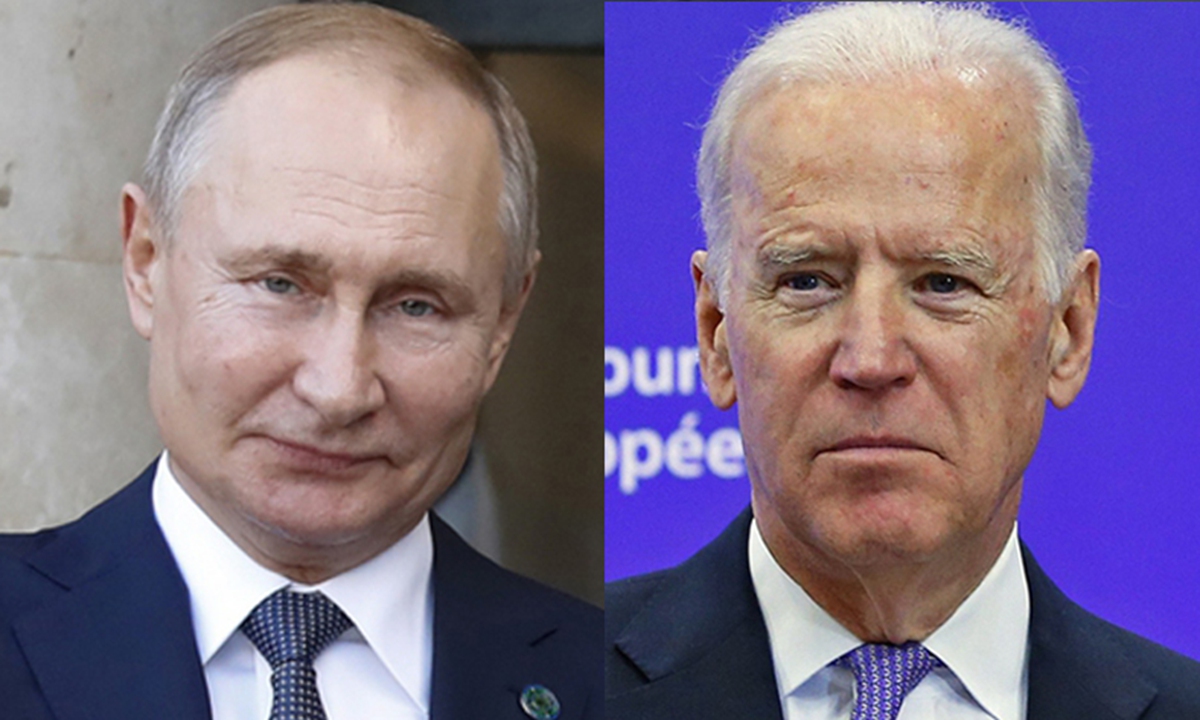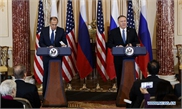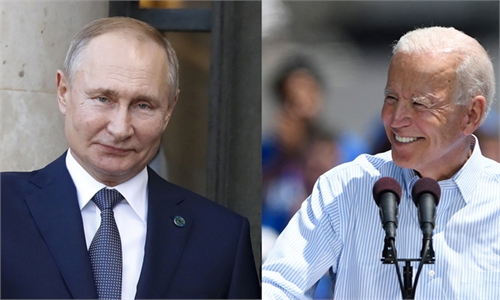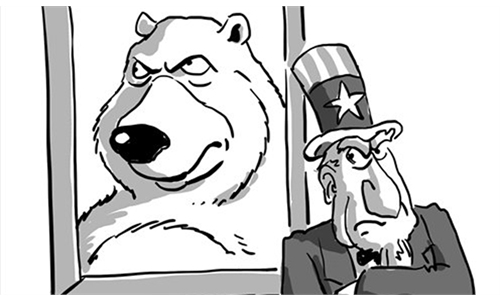
Xinhua file photos of Russian President Vladimir Putin (L) and US President Joe Biden (R)
The so-called China threat theory has again been put at the center of the international stage, with the US hyping it in occasions such as the G7 and NATO summits. US media outlets haven't lagged behind in this new round of campaign. In an interview with Russian President Vladimir Putin aired on Monday, NBC News raised various contentious questions about China, wishing to derive some words from this experienced Russian leader that would delight the West.The US outlet was really na?ve when it tried to drive a wedge between China and Russia before the Putin-Biden summit. To woo Russia, US President Joe Biden even changed his definition of Putin as a "killer," saying Putting is a "worthy adversary" who is "tough" and "bright." But all these cannot change the fact that it is the security pressure the US has imposed on China and Russia that has driven Beijing and Moscow closer. How clumsy and ridiculous the US elites are by wanting to convince Russia with the so-called China threat!
Not surprisingly, such attempts had backfired. Putin said in the interview that there are "attempts at destroying the relationship between Russia and China," noting that, "We do not believe that China is a threat to us."
When the interview came to the topic about China's reported fourth aircraft carrier, Putin asked, "How many [aircraft carriers] does the United States have?" Keir Simmons of NBC News responded, "A lot more."
Although Putin didn't say it explicitly, he had meant it clearly enough: If China's aircraft carrier is evidence of a "China threat," what has the US, with "a lot more" aircraft carriers, posed to the world? Washington's military hegemony is the biggest threat to the entire world.
Russia can stay rational because it has seen through the real intentions of the US, Li Yonghui, a senior research fellow in the Institute of Russia, Eastern European and Central Asian Studies at the Chinese Academy of Social Sciences, told the Global Times on Tuesday.
Before the G7 summit, Guardian columnist Rafael Behr published an article entitled, "Joe Biden's mission at the G7 summit: to recruit allies for the next Cold War." A new cold war is not even in line with the interests of US allies, who have strived to avoid it. For example, French President Emmanuel Macron said during the recently concluded G7 summit that the G7 is not a club hostile to China.
Nonetheless, the US has turned a blind eye to its allies' real stance and needs, but stepped up efforts to rope them into its anti-China camp. China is geographically distant from these countries. China's military threat to them comes out of thin air, but economic and trade cooperation is the mainstream of relations between China and these countries. Such being the case, isn't the US move to force these allies to take sides the biggest threat to them?
"China is a friendly nation. It has not declared us an enemy, as the United States has done," Putin said in the interview with NBC News. China has never labeled any other country an enemy. Instead, it treats all countries with equality and respect. This is in stark contrast to what the US has always been doing.
What the US cares about is its hegemony. Whenever any country may touch US hegemony in a certain sphere, Washington will not hesitate to label the country an enemy, or opponent, or competitor, or rival, and will do its best to crack down on that country. The US has been finding fault with Russia, even though the Soviet Union had disintegrated, and began to point its gun at China in recent years.
In the face of such a US, a country will not benefit if it cannot keep its mind, but falls into Washington's narrative trap and becomes a vassal of the US in the end and sacrifices its own interests for US hegemony.



